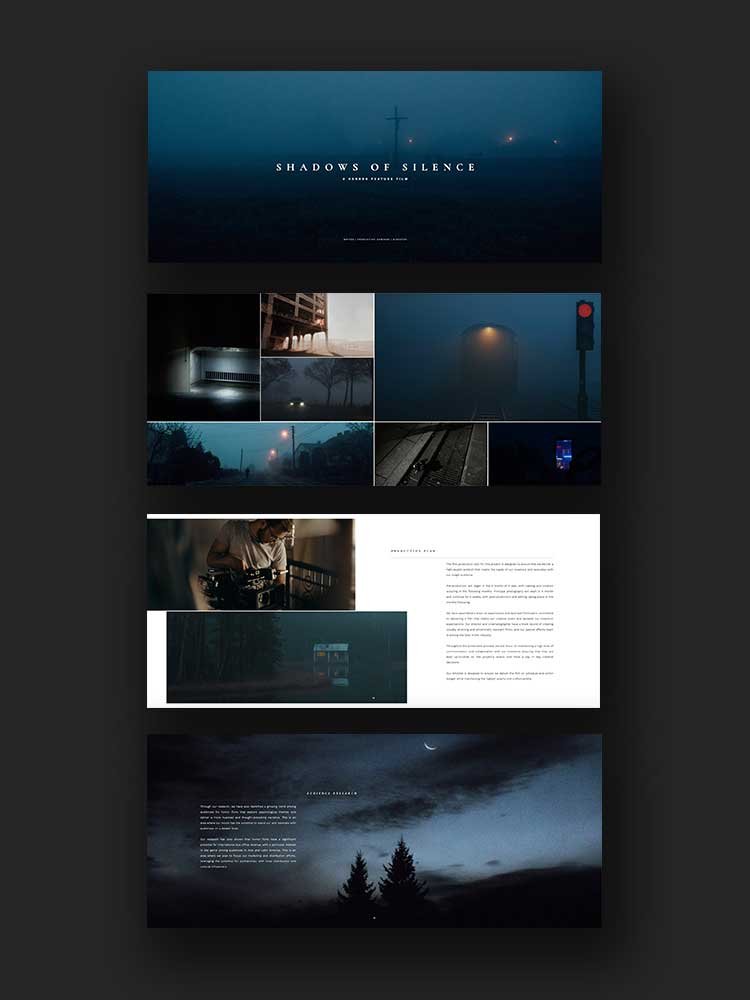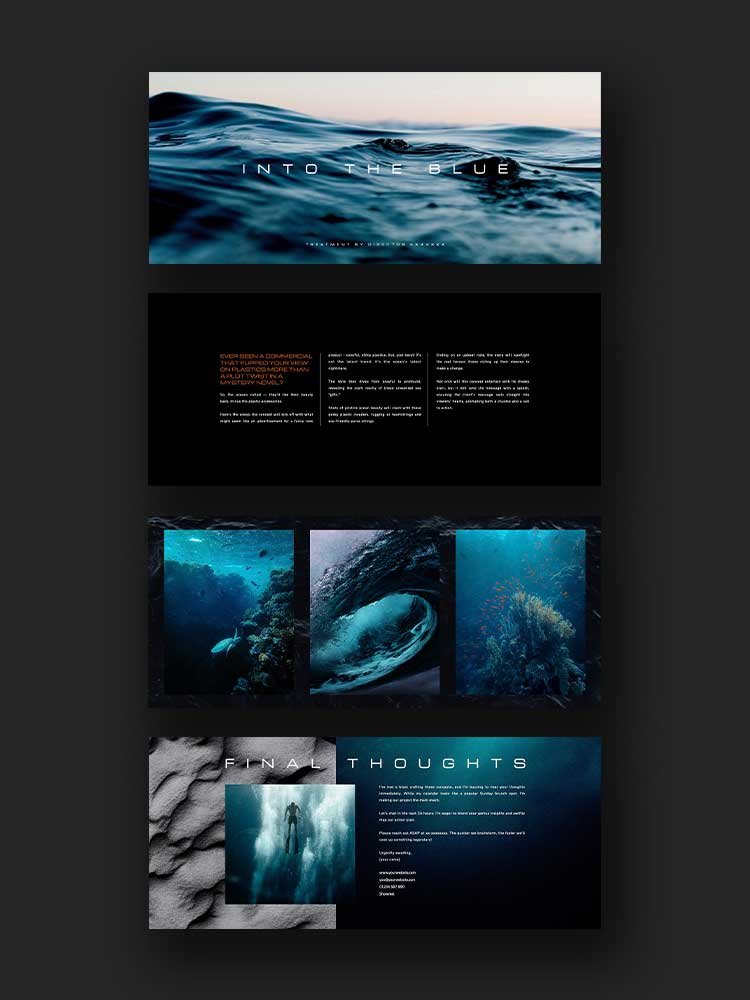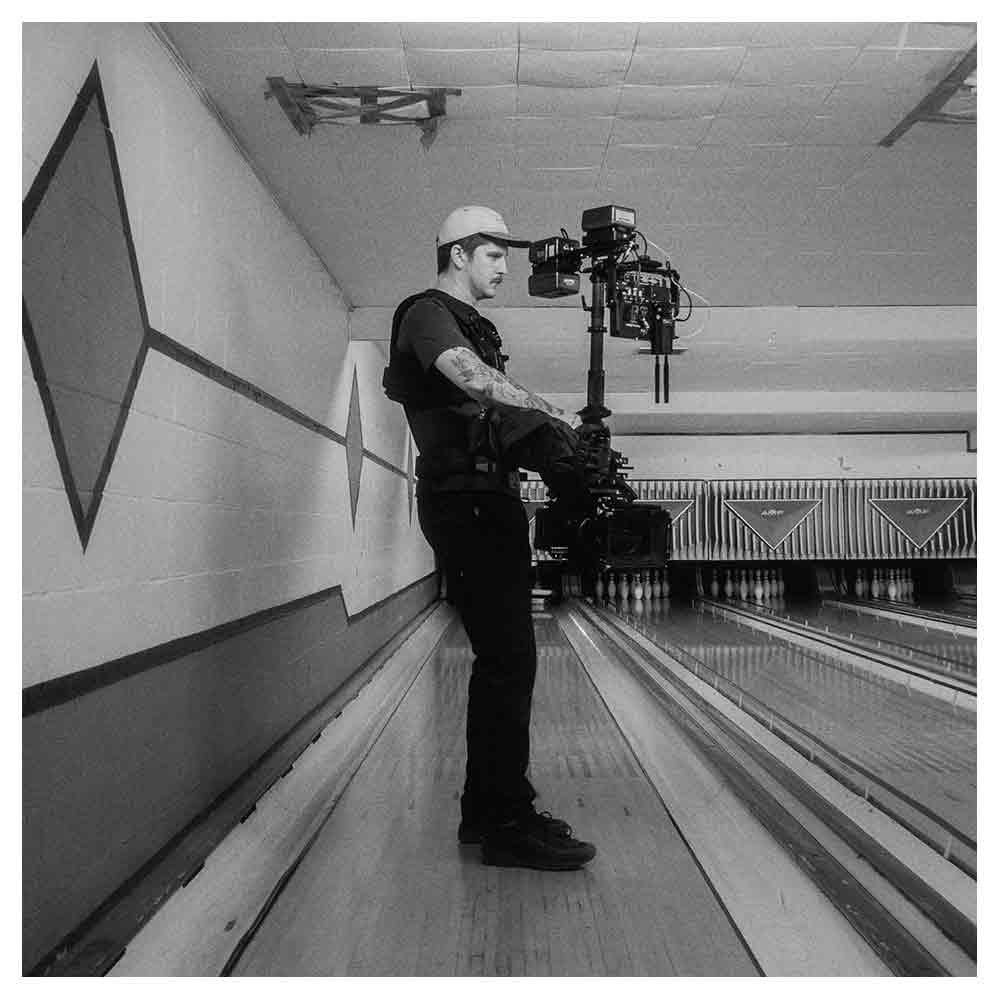The Art of Crafting the Perfect Movie Pitch
In cinema, a movie pitch is a crucial step from an idea to the big screen. This is the moment when you present your movie idea to potential producers, investors, and production companies, hoping to pique their interest and get them on board.
The difference between a successful pitch and one that falls flat can be the deciding factor in whether your film gets made.
This blog will explore the essentials of a great movie pitch and how to prepare for the big moment.
Elevator Pitch: A Brief but Powerful Introduction
An elevator pitch is a concise and compelling introduction to your film idea. It should be no longer than 30 seconds to a minute, and its purpose is to grab your audience's attention quickly.
This is the pitch you might give during an impromptu meeting with a producer or during a chance encounter with an industry professional.
Here are some tips for creating a captivating elevator pitch:
Focus on the core elements: Describe the main characters, the central conflict, and the unique elements of your story.
Make it relatable: Compare your story to other successful films in the same genre or with a similar tone.
Create a strong impression: Use vivid language and powerful imagery to leave a lasting impact on your listener.
The Film Pitch: A Deeper Dive into Your Story
While the elevator pitch briefly introduces your idea, the film pitch is a more in-depth presentation.
This is where you'll have the opportunity to share a detailed overview of your story, the characters, the world, and other key elements.
Here are some important aspects to include in your film pitch:
Plot Summary: Provide a concise, compelling summary of your story, including the beginning, middle, and end.
Main Characters: Describe the protagonist(s) and antagonist(s), including their motivations, goals, and conflicts.
Setting: Explain the world where your story takes place, including any unique elements or rules that govern it.
Themes: Identify the underlying themes and messages that your film will explore.
Target Audience: Specify the demographic you believe will be most interested in your film.
Comparable Films: Offer examples of other successful films similar in tone, genre, or subject matter.
Pitch Decks: A Visual Presentation
Pitch decks are visual aid that can help support your movie pitch ideas. These decks typically include images, artwork, and minimal text, showcasing the look and feel of the proposed film.
A well-designed pitch deck can help immerse your audience in the world you're trying to create and make your pitch more persuasive.
Here are some tips for creating an effective film pitch deck:
Keep it simple: Use minimal text and focus on visuals to convey the atmosphere and style of your film.
Hire a graphic designer: If you don't have the skills to create a professional-looking pitch deck, consider hiring a graphic designer to help bring your vision to life.
Include relevant visuals: Incorporate images of the main characters, key locations, and important scenes to help your audience visualize your story.
Be consistent: Make sure the overall design and style of your pitch deck are cohesive and aligned with the tone of your film.
Preparing for the Pitch Meeting
The pitch meeting is your opportunity to present your movie idea to the decision-makers in the film industry.
It's essential to be well-prepared and confident in your presentation. Here are some tips for ensuring a successful pitch meeting:
Research the production company: Before the meeting, learn about the company's history, the types of films they've produced, and their target audience. This knowledge will help you tailor your pitch to their interests and demonstrate your understanding of their brand.
Practice your pitch: Rehearse your elevator pitch and film pitch multiple times, ensuring you can deliver them confidently and smoothly. Consider practicing with friends or family to get feedback and improve your presentation.
Prepare for questions: Be ready to answer any questions during the meeting. Anticipate potential concerns or inquiries and have well-thought-out responses prepared.
Bring your pitch deck and other materials: Ensure you have a polished pitch deck, a one-page synopsis of your film, and any other relevant materials, such as a screenplay or treatment, to provide a comprehensive overview of your project.
Make small talk: Engage in small talk with the decision-makers before diving into your pitch. This can help establish rapport and put everyone at ease.
Social Media Platforms and Pitch Fests: Alternative Avenues for Your Movie Pitch
While traditional pitch meetings with production companies and potential investors are still essential, there are other avenues you can explore to get your movie idea in front of the right people:
Social media platforms: Utilize social media to share your movie pitch or elevator pitch with a wider audience.
This can generate interest and potentially attract the attention of industry professionals.
Pitch fests: Attend pitch fests and events designed for screenwriters and filmmakers to pitch their ideas to industry professionals.
These events provide an opportunity to network, receive feedback on your pitch, and potentially connect with decision-makers interested in your project.
The Art of Storytelling: Crafting a Compelling Conclusion
A captivating movie pitch is about more than just sharing the details of your story; it's also about demonstrating your storytelling abilities.
To leave a lasting impression, ensure your pitch has a compelling conclusion that ties everything together and highlights the emotional impact of your film.
Remember to emphasize the unique elements of your story, showcase the visual world you've created, and illustrate the themes and messages you're trying to convey.
By doing so, you'll demonstrate that your movie idea has the potential to resonate with audiences and leave a mark on the film industry.
In Summary: The Key to a Successful Movie Pitch
A great movie pitch combines passion, preparation, and storytelling prowess. By following the tips and guidelines in this blog post, you'll be well on your way to crafting a compelling pitch that captures the imagination of your audience and moves your film idea closer to becoming a reality.
So, keep refining your pitch, practice your presentation skills, and believe in the power of your story.
With determination and persistence, you'll increase your chances of turning your movie idea into a successful film that captivates audiences and leaves a lasting impression on cinema.
Frequently Asked Questions about Movie Pitches
What is a movie pitch?
A movie pitch is a brief, persuasive presentation of a film idea to potential producers, investors, or production companies.
The goal of a movie pitch is to generate interest in the project and secure funding or support to bring the film to life.
What is the difference between an elevator pitch and a film pitch?
An elevator pitch is a short, 30-second to one-minute pitch that quickly and effectively conveys the core elements of your film idea.
It is meant for impromptu encounters with industry professionals or brief conversations. A film pitch, on the other hand, is a more detailed and in-depth presentation of your movie idea, typically presented during a formal pitch meeting.
What should I include in my movie pitch?
Your movie pitch document should include the following elements:
Plot summary
Main characters
Setting
Themes
Target audience
Comparable films
What is a pitch deck, and how do I create one?
A pitch deck is a visual aid that supports your movie pitch. It typically includes images, artwork, and minimal text to convey the proposed film's atmosphere, style, and key elements. To create a pitch deck:
Keep it simple and focus on visuals
Hire a graphic designer if necessary
Include relevant visuals (characters, locations, scenes)
Ensure consistency in design and style
How do I prepare for a pitch meeting?
To prepare for a pitch meeting:
Research the production company
Practice your elevator pitch and film pitch
Anticipate and prepare for questions
Bring your pitch deck and other materials (e.g., one-page synopsis, screenplay)
Engage in small talk to establish rapport
Are there alternative ways to pitch my movie idea?
Yes, you can pitch your movie idea through social media platforms or by attending pitch fests. Social media allows you to share your pitch with a broader audience and potentially attract the attention of industry professionals.
Pitch fests are events designed for screenwriters and filmmakers to pitch their ideas to industry professionals, offering networking opportunities and feedback.
What makes a movie pitch successful?
A successful movie pitch combines passion, preparation, and storytelling prowess. It should be concise, compelling, and showcase the unique elements of your film idea.
A successful pitch should demonstrate your understanding of your target audience, the film industry, and the production company you're pitching to.
How can I improve my pitching skills?
To improve your pitching skills:
Practice your pitch regularly and rehearse with friends or family to get feedback.
Attend workshops, seminars, or webinars on pitching to learn from industry professionals.
Study successful pitches from other filmmakers to understand what works and doesn't.
Develop your storytelling skills and focus on the emotional impact of your film idea.
How important is it to tailor my pitch to the production company or producer I'm pitching to?
Tailoring your pitch to the production company or producer is crucial. By demonstrating your understanding of their brand, target audience, and previous projects, you'll show that you've done your research and that your film idea aligns with their interests.
This can greatly improve your chances of securing their support.
Can I pitch multiple movie ideas during a single pitch meeting?
While it's possible to pitch multiple movie ideas during a single meeting, it's generally not recommended.
Focus on presenting one strong, well-prepared pitch for the film you're most passionate about. If the producer or production company wants more ideas, you can briefly mention other projects you're working on.
What should I do if my movie pitch is rejected?
If your movie pitch is rejected, don't be discouraged. Use the feedback and experience to improve your pitch and continue pursuing other opportunities.
Keep networking, attending pitch fests, and refining your presentation skills. Remember that the film industry is competitive, and persistence is key to eventually finding the right fit for your project.
Can I pitch my movie idea without a completed screenplay?
While it's possible to pitch your movie idea without a completed screenplay, having a well-written screenplay can greatly increase your chances of success.
A screenplay provides a more comprehensive overview of your story, characters, and dialogue and demonstrates your commitment to the project.
If you don't have a completed screenplay, consider having a detailed treatment or outline to support your pitch.
How can I use a cover letter to enhance my film pitch to major studios?
Include a brief summary that hooks the reader, introduce your film concept, and express how it aligns with the studio’s interests. Keep it concise to maintain the reader's attention.
What essential elements should I include in a pitch to ensure it appeals to film producers at film festivals?
Focus on a compelling plot, unique characters, and a fresh film genre. Add a logline that captures the essence of your film and a short synopsis that intrigues without revealing too much detail.
Can a well-crafted elevator pitch increase my chances of securing a meeting with studio executives?
Absolutely. A polished elevator pitch that succinctly conveys your story's core while intriguing the listener can open doors to more detailed discussions.
How should I prepare a pitch deck for a horror film set on a tourist island with a marine biologist as the protagonist?
Use imagery that sets the atmospheric tone of a quiet place turned terrifying by dangerous creatures, perhaps a menacing great white shark, to align with the film's horror elements.
In what way can the setting influence the pitch of a movie about a dystopian world?
Highlight how the setting—a ravaged post-apocalyptic world—intensifies the plot and character arcs, showcasing survival among only these survivors against unstoppable odds and creatures.
What strategies can help a writer convey the urgency and dramatic tension of a film about a sinking boat and a killer shark?
Employ vivid descriptions and high stakes to convey urgency, perhaps comparing it to iconic narratives like Moby Dick or Jaws. Emphasize the human race's struggle against nature, which is essential for an engaging pitch.
How important is it to tailor the style and tone of my pitch when presenting to different producers, say for a comedy versus a slasher flick?
Crucially important. Tailor your pitch to reflect the film's genre and the producer's known preferences to better connect and convince them of the project's viability.
What are the benefits of including a brief overview of the market analysis in my film pitch?
It demonstrates understanding of the potential audience and industry trends, helping producers visualize the film’s market fit and potential success.
How can leveraging the concept of ultra-sensitive hearing in a creature feature film enhance the pitch?
It adds a unique element by transforming every single sound into a potential threat, thus creating continuous tension and intrigue.
What's the role of a pitch fest in refining the verbal pitch of a feature film project about a police chief on an island resort?
Pitch fests provide a platform to practice and refine your pitch based on real-time feedback, helping you clarify your vision and better engage with potential investors.
How can the introduction of a character with a unique trait, like compressed air stuck in their diving gear, add depth to a movie pitch?
It introduces a novel conflict in the storyline, adding layers to the character's survival arc and escalating the overall drama and stakes.
Is it advisable to send unsolicited pitches to film producers, and should they include self-addressed stamped envelopes?
While most major studios do not accept unsolicited pitches, for smaller studios, including a self-addressed stamped envelope, can facilitate a response, making it slightly more likely they will review your materials.
How can I effectively use a cliffhanger in my pitch to leave studio executives wanting more?
End your pitch with a dramatic cliffhanger that leaves key plot questions open, compelling the listeners to engage in a conversation to discover more.






































